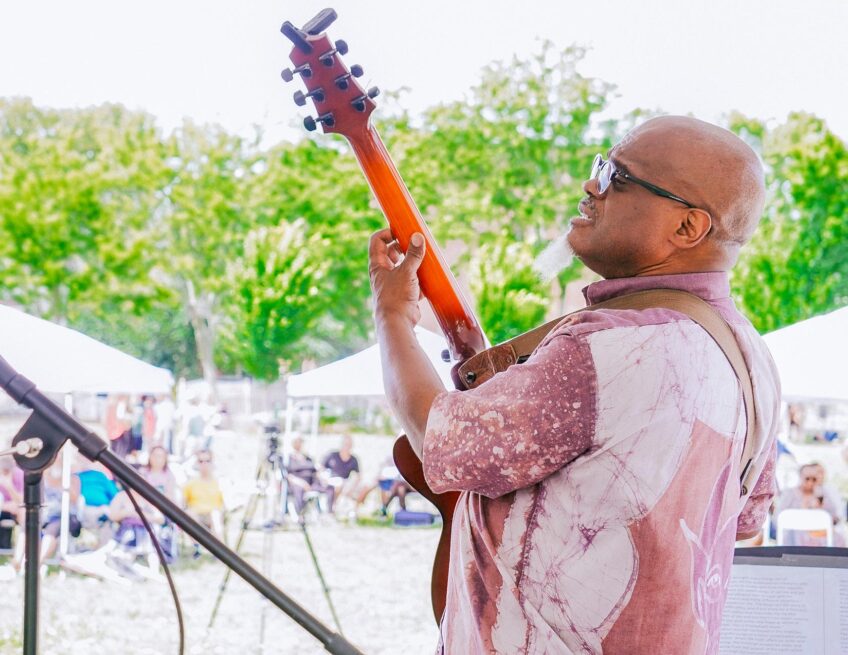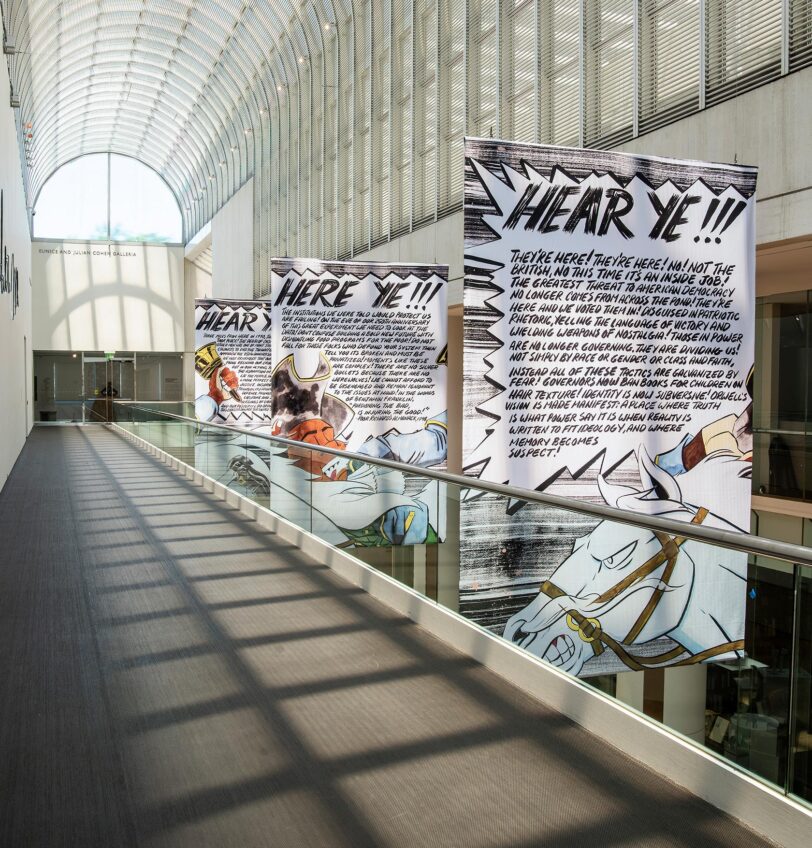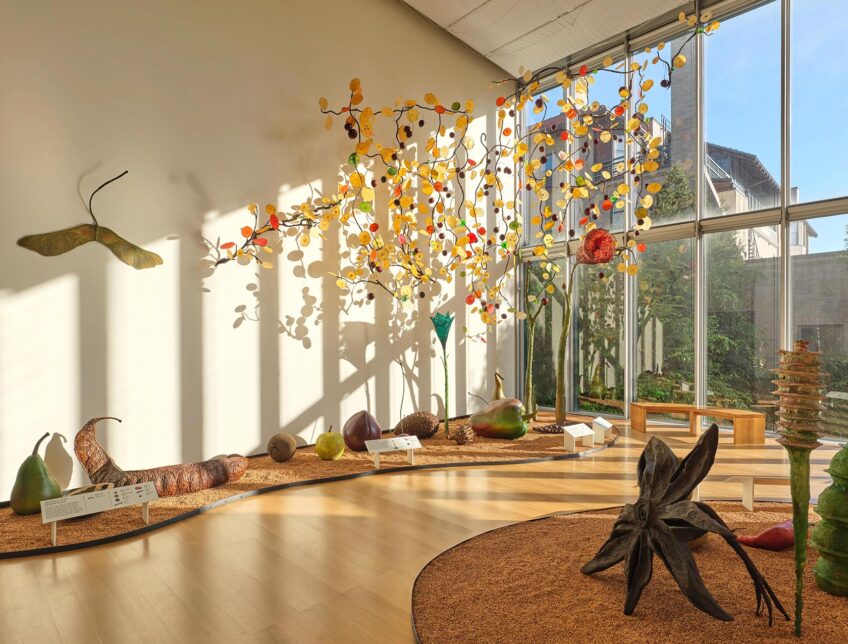Infectious rhythms of the late Fela Anikulapo-Kuti’s afrobeat beg the body to move. His often 10-minute long jam sessions infuse African beats, jazz and funk. Together, the tunes formed a unique sound that acted as protest against oppressive government forces in his native Nigeria.
Through an explosion of color, dance and a smattering of history, theatergoers were transported from the Cutler Majestic Theatre to Kuti’s Shrine nightclub in Lagos in the play Fela! that opened last week. The nightclub is where afrobeat was born and the musician’s war against injustice raged for years through haranguing lyrics and wild beats.
Fela Ransome Kuti (he later changed his middle name to Anikulapo, a Yoruba name which means ‘he who carries death in his pouch’) was born north of Lagos in 1938 to a schoolmaster and pianist father and feminist leader mother. He was educated among the elite and studied abroad in London. His family sent him to the U.K. for a degree in medicine but Kuti had other plans.
He studied music, immersed himself in James Brown and Frank Sinatra and later returned home.
Kuti’s music took a sharp political turn after spending several months in America recording. While in Los Angeles working on his album, Kuti met Sandra Isidore who introduced Kuti to Black Nationalism, Afrocentrism, and the writings of Malcolm X. With a clearly defined musical voice, Kuti and his band, then named Nigeria 70, headed back to Africa.
In the play, Kuti (Sahr Ngaujah) delivers an exuberant performance as he tells the audience about the corruption in his homeland. He tells of his time in London, his hope for empowering the disenfranchised and the abuses he and his fans and band members have endured.
The quick snapshot into the life of the complicated Kuti from the early ’60s to the late -’70s who loved women just as much as he loved the idea of an oppression-free world was action packed and deeply emotional. From the provocative choreography to the expertly designed set, Fela! was a romping party with a talented group of singers and dancers that, for several moments, makes show goers forget about the lurking danger outside the Shrine’s doors.
Kuti’s biting lyrics indicted government officials that were accused of corruption and scandal with every bar. And the powers that be retaliated. Police consistently stormed Kuti’s Kalakuta compound, which housed the Shrine and arrested the rabble-rouser over 200 times. Kuti was nearly killed on several occasions but he refused to leave his compound, which he declared an independent republic — or his beloved country.
On stage, beautiful women that live on the compound chant Kuti’s verses and wind their pelvises vigorously while openly showing their adoration for Kuti and his life long struggle against the proverbial man.
Near the end, jovial, dancing audience members were stunned into silence when the music died down and images of the captured band and residents of Kuti’s compound were beaten, dragged around by their genitals or raped. A minute-by-minute account that included the tossing of his mother Funmilayo — who guides Kuti throughout the performance — from a second story window, only hints at the danger and devastation Kuti and his followers endured.
A wonderful story of unrelenting courage in the face of adversity peppered with laughter, a hint of mysticism and sensuality, Fela! is not to be missed.
For more information on Fela! or to buy tickets visit www.artsemerson.org.






